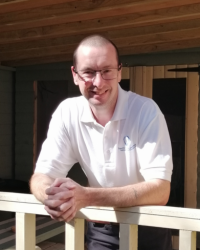The misunderstood nature of anxiety
Anxiety, a common and pervasive mental health condition, is often misunderstood by society at large. It is often mistakenly seen as a weakness or a character flaw rather than a complex neurobiological response to stress and threat. However, through the groundbreaking research of Joseph LeDoux, a leading neuroscientist in the field of fear and anxiety, we can gain valuable insights into the true nature of anxiety and challenge the misconceptions surrounding it.

Anxiety is not a simple emotion that can be easily dismissed or controlled. It is a multi-faceted and intricate response involving various brain regions and neurotransmitter systems. Joseph LeDoux's research has shed light on the neurobiology of anxiety, specifically through his work on the amygdala.
The amygdala, a small almond-shaped structure deep within the brain, plays a crucial role in processing emotions, particularly fear and anxiety. LeDoux's studies have shown that the amygdala acts as an early warning system, rapidly detecting potential threats in the environment and triggering a cascade of physiological and psychological responses.
One of the primary reasons anxiety is misunderstood is the prevailing misconception that it is merely a result of weak willpower or an inability to handle stress. Such beliefs not only oversimplify the condition but also contribute to the stigmatisation of individuals experiencing anxiety.
LeDoux's research highlights that anxiety is not a choice or a reflection of one's character; rather, it is deeply rooted in the brain's intricate wiring and evolutionary history. The amygdala's hypersensitivity to potential threats, while once adaptive for survival, can become maladaptive in modern society, leading to heightened anxiety responses.
Contrary to popular belief, anxiety can serve a purpose and has evolutionary advantages. It is an innate response designed to protect us from potential danger, preparing the body to either confront or flee from a threat. This fight-or-flight response, mediated by the amygdala, triggers a surge of stress hormones, increases heart rate, and heightens sensory awareness.
While anxiety can be debilitating when experienced excessively or in inappropriate situations, it is essential to recognise that moderate levels of anxiety can enhance performance, motivate action, and increase vigilance. By acknowledging anxiety's adaptive nature, we can encourage a more compassionate and empathetic understanding of individuals grappling with anxiety disorders.
Joseph LeDoux's research has been instrumental in deepening our understanding of anxiety. His studies on fear conditioning and the neural circuitry of anxiety have illuminated the intricate mechanisms underlying this complex emotion. By examining the specific brain structures involved, such as the amygdala and the prefrontal cortex, LeDoux's work has contributed to a more comprehensive framework for understanding anxiety disorders.
Furthermore, LeDoux's research has highlighted the importance of considering both biological and environmental factors when studying anxiety. It emphasises that anxiety disorders result from a combination of genetic predispositions, early-life experiences, and environmental triggers. This holistic approach is essential for providing effective treatment strategies and reducing the stigma associated with anxiety.
Anxiety is a multifaceted and intricate condition that extends beyond mere weakness or character flaws. Through Joseph LeDoux's groundbreaking research, we gain valuable insights into the neurobiological underpinnings of anxiety, challenging the prevailing misconceptions surrounding it. By recognising anxiety's adaptive nature and understanding its complexity, we can foster a more compassionate and supportive society that encourages dialogue, education, and effective treatment options for those affected by anxiety disorders.
Referring to our amygdala as a "fear centre" is common. But contrary to popular belief, the amygdala may not be the seat of fearful memories. In 2015, Joseph LeDoux tried to set the record straight. He wrote, "The amygdala is not the brain's fear center."
New fMRI-based research suggests that the human sensory cortex, not the amygdala, is responsible for storing fearful memories from our past.

Find a hypnotherapist dealing with Anxiety
All therapists are verified professionals






